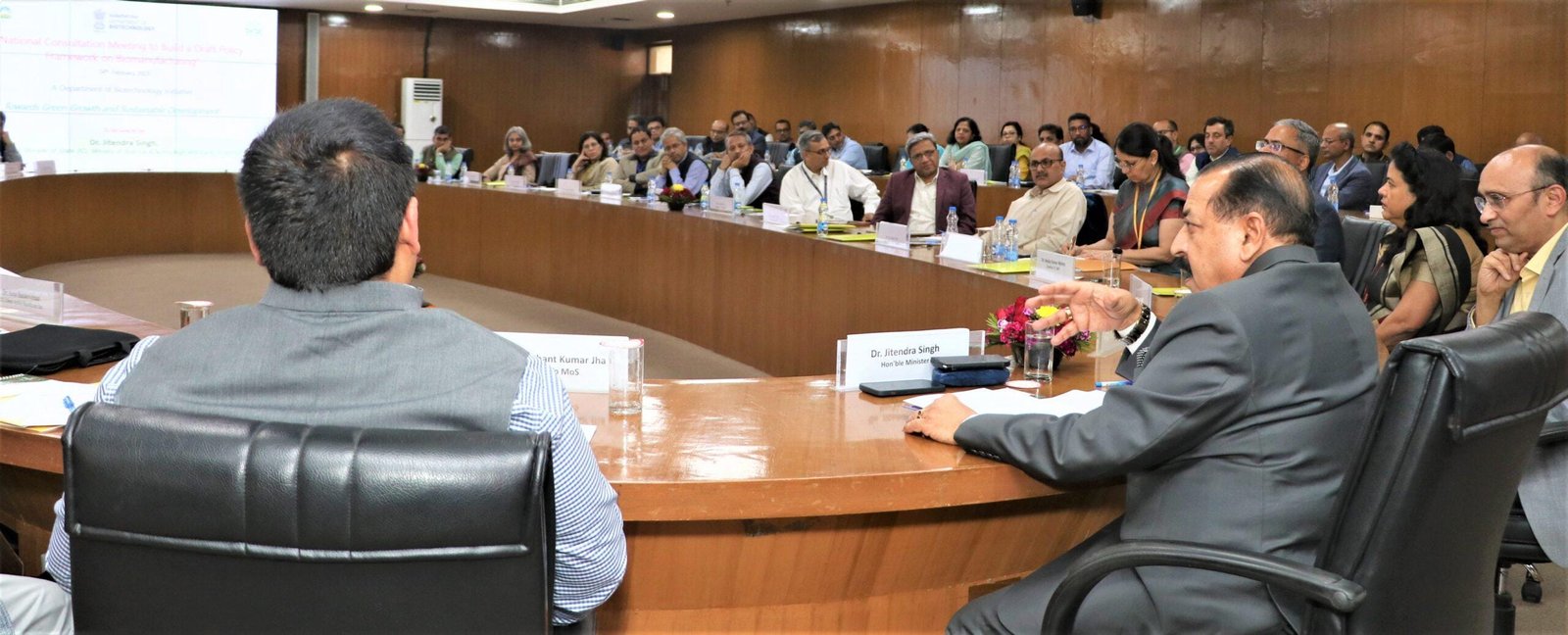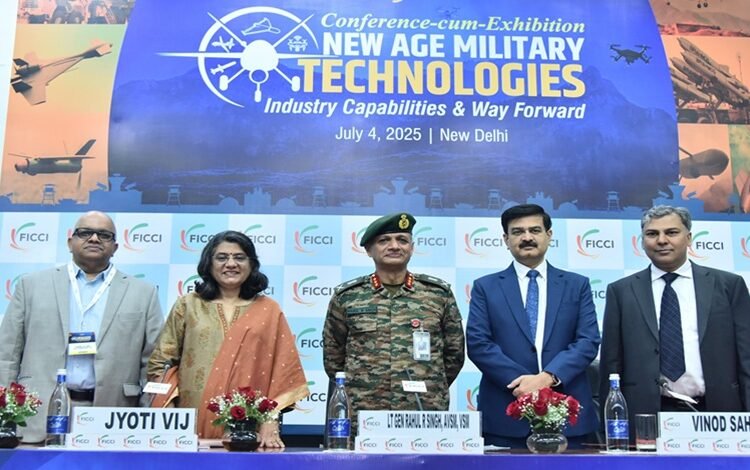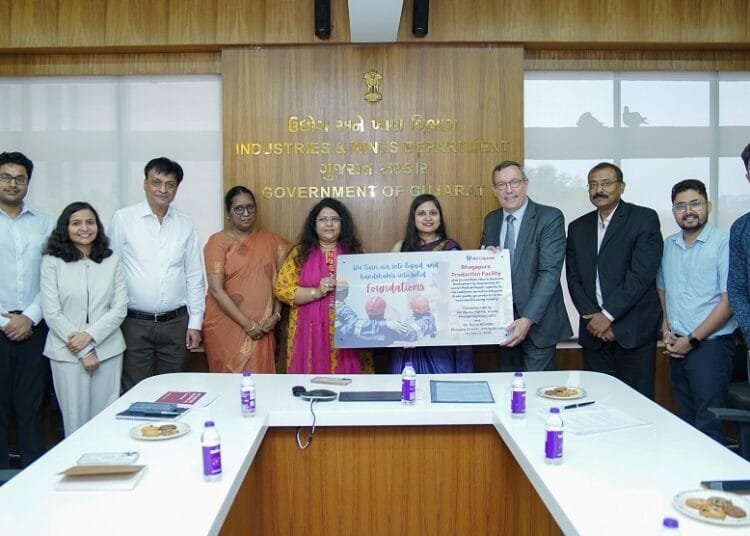Govt committed to High-Performance Bio-manufacturing
With its bioeconomy poised to touch US$300 billion by 2030 and with its rising innovation and scientific temper, India is set to join the global wave of a new industrial revolution.
This projection was made by Minister of State for Science & Technology Dr Jitendra Singh at the “National Consultation Meeting on Bio-manufacturing to build a Draft Policy Framework on Bio-manufacturing” on 24 Feb 2023.
The Government is committed to enable Circular-Bio-economy by advancing ‘High-Performance Bio-manufacturing’ in the country.
The Department of Biotechnology (DBT) envisages that to bring together scientific and technological advancement towards achieving a major goal of the Department’s vision of BioE3 (i.e. Biotechnology for Economy, Environment and Employment) for green, clean and prosperous India.
He called for a systematic framework plan for implementation of robust innovative bio-based eco-friendly solutions to further boost the ongoing economic growth of our nation.
Additionally, “Mission LiFE” — ‘Lifestyle for the Environment’ — launched by the Prime Minister Narendra Modi on 20 Oct 2022 urges us to put forward green and friendly environmental solutions in every aspect of life to effectively achieve climate and energy goals,” he pointed out.
Dr Jitendra Singh also added that this program will strengthen ‘Make in India’ by supporting domestic manufacturing (Industry 4.0), as it will support building green infrastructure for bio-manufacturing across the country.
Moreover, it will also lead to development of a skilled workforce in the domain of Bio-manufacturing, a surge in job creation and entrepreneurship especially in 2- and 3-tier cities and streamline policies and regulations for Biogenic products to expand market opportunities.
It will provide new opportunities for revenue generation to chemical businesses by manufacturing high-quality, recyclable goods from renewable resources, the Minister informed.
Dr Jitendra Singh elaborated, “Bio-manufacturing offers a great potential by being amenable to innovation, energy efficient and causing reduced pollution, as it employs biological systems, including microbes, plant cells, and enzymes, to produce commercially relevant products.”
He pointed out that the backbone of this initiative comprises advanced tools of biotechnology including synthetic biology, genome editing, microbial bio-resources, metabolic engineering, etc.
India is the world’s 3rd largest importer of crude oil and the 4th largest importer of liquefied natural gas, a large part of which is used in the chemical industrial manufacturing.
In his address, DBT Secretary Dr Rajesh Gokhale added, “To make India a ‘Net Zero’ carbon economy’ by 2027, we expect a paradigm shift towards a bio-based circular carbon economy by adopting an integrated and inclusive approach of Bio-manufacturing.”
Dr Gokhale informed that the pilot-scale based bio-manufacturing units will employ fermentation using enhanced microbial cell factories (and sugar, biomass, waste-based raw material) to manufacture bio-based products as an alternative to chemical products across various industrial sectors.
Some of these sectors include, food additives, biopharmaceuticals, biogenic dyes, bulk chemicals, animal feed products, flavours, fragrances, biomaterials, Agri-bio products, etc.
Dr. Alka Sharma, DBT Senior Advisor, underlined that through this approach, an innovative ‘plug and play’ model of manufacturing for Industry 4.0 is being proposed.
The backbone of this initiative comprises advanced tools of biotechnology including synthetic biology, genome editing, metabolic engineering among others, she said. fiinews.com










